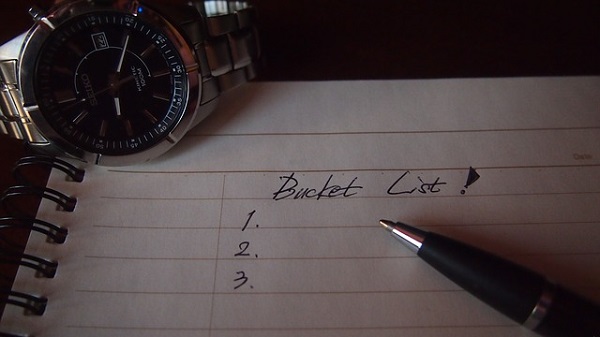5 Simple Tips for Keeping Your New Year’s Resolution
By Kayla Matthews
December 5, 2017 • Fact checked by Dumb Little Man

It’s almost a brand new year and with that comes the inevitable New Year’s resolutions.
Maybe you want to lose weight and/or get in shape. Maybe you want to quit smoking. Perhaps you wish to do something more creative, like starting a daily journal, finishing a novel or learning a new language.
You eagerly set all those things in January and by February, all your efforts are gone- if they even last that long.
Why is it so difficult to make a resolution that works?
Why Resolutions Fail
Most resolutions fail not because you lack good intentions but because if you truly wanted to make a lasting change in your life, you wouldn’t have to wait for a special day to do it. You’d already be taking steps to attain your goal and you wouldn’t allow one setback to derail or defeat the other steps you’d already taken to achieve that goal.
That is exactly the practice you need to follow should you really wish to bring lasting changes to your life.
So, instead of thinking of a New Year’s resolution as an all-or-nothing proposition where one slip-up derails your entire effort, create a mindset that any and all progress toward your goal is worthy of reward. Rather than focusing on the negatives, focus on the progress you have made.
What You Can Do Instead of Making a New Year’s Resolution
Here are some alternatives to the traditional New Year’s resolution and how they will truly help you change your life for the better.
Make a Bucket List for the New Year

Everyone’s heard of lifelong bucket lists. However, when we think of bucket lists, we often think in very vague terms, like “Someday, I’d like to skydive/hike the Grand Canyon, run a marathon and visit Paris.”
Instead, why not make a bucket list for the year?
Making a list of things you want to do rather than setting one virtually unattainable goal is far more enjoyable. Plus, looking forward to checking items off your list makes you encouraged to tackle the necessary steps you need to take.
For example, one of your bucket list items for the year is to learn Spanish. To check this item off your list, you’ll need to set aside weekly, or better yet, daily time to practice it. If one of your bucket list items is to run a 10k marathon, you’ll have to make a weekly training schedule to check that item off of your annual bucket list.
Focus on the Process and Make It Enjoyable
We’re all familiar with the cliché that Rome wasn’t built in one day. And as with all clichés, there is a glimmer of truth to that statement.
When setting a long-term goal, such as quitting smoking or losing weight, it’s vital to celebrate every step of the journey to keep you motivated.
Ask yourself questions about what you would like to achieve.
Perhaps your goal is to fit back into the size 10 jeans you wore in high school. Then, make a list of some of the behaviors you can change to achieve your goal.
Set it out on a weekly basis and congratulate yourself for every positive action taken. You can try eating fast food no more than once a week or commit to exercise at least 10 to 15 minutes per day.
Instead of beating yourself up when you slip up, try congratulating yourself each time you do well. Celebrate making it through a week of workouts with a nice, long bubble bath or by buying yourself a small gift.
By making the process something you can enjoy and celebrate, you’ll be well on your way to making lasting life changes.
Set Mini Goals and Take Small Steps Daily
Perhaps one of your bucket list items for the year is to finish a novel. This takes time and as every writer knows, you can’t count on just waiting for the moment inspiration strikes to start writing.
Instead, set a goal of writing one to two pages per day. Hold yourself accountable. You can make a pact with a family member or friend to discuss your daily goals. Then, check back with them at the end of each day to evaluate and celebrate your progress.
Write Your Goals Down and Use Checklists

Another great way to keep yourself accountable with your resolutions or goals is to write them down. Writing your goals helps make them more concrete and specific.
For example, to lose weight is a vague and amorphous goal. “To lose one pound per week” breaks it down so you’ll have a more concrete path to success.
Also, use checklists to keep yourself on track.
Each Sunday, for example, sit down and write a list of actions you can take that week that can help you achieve your goal.
You can write down your workout schedule for the week. As you write down the schedule, include check boxes next to the routines. As you accomplish and check off each routine, you get instant visual validation that you are on track.
Make Goals That Are Attainable and Measurable
Experts agree that the best goals have certain characteristics. They should be specific, measurable, achievable, relevant, and time-bound (SMART). These SMART goals are empowering because they focus on goals you can obtain and offer a specific time frame for completion.
See Also: How to Set Personal SMART Goals To Succeed
For example, you wish to run a half marathon this year.
To create a SMART goal, many trainers would recommend that you make a training schedule on a calendar you see daily, such as a large wall calendar. By seeing the number of miles you have completed, you’ll be able to measure your progress.
The problem with traditional New Year’s resolutions is they focus on your setbacks instead of celebrating the progress you’ve accomplished. So, for this year, create resolutions that will celebrate you.
Kayla Matthews
Senior writer @makeuseof. Bylines on @theweek, @motherboard, @technobuffalo and @venturebeat. Interested in personal and professional development and continued self-improvement.


